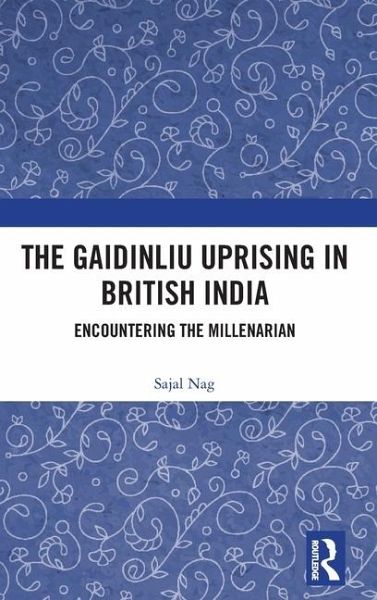
The Gaidinliu Uprising in British India
Encountering the Millenarian
Versandkostenfrei!
Versandfertig in 6-10 Tagen
154,99 €
inkl. MwSt.
Weitere Ausgaben:

PAYBACK Punkte
77 °P sammeln!
This book studies the Gaidinliu uprising led by Rani Gaidinliu, a spiritual and political leader from Northeast India. It follows the journey of Gaidinliu, who was at the forefront of the revolt which turned into a political movement seeking to drive out the British from Manipur and the surrounding Naga areas. The book looks at the Gaidinliu movement as one of many tribal responses to colonial transformation, deprivation, alienation, and extreme oppression of the tribal formations in India. It also critically analyses the diverse colonial modes of tackling the different types of opposition to ...
This book studies the Gaidinliu uprising led by Rani Gaidinliu, a spiritual and political leader from Northeast India. It follows the journey of Gaidinliu, who was at the forefront of the revolt which turned into a political movement seeking to drive out the British from Manipur and the surrounding Naga areas. The book looks at the Gaidinliu movement as one of many tribal responses to colonial transformation, deprivation, alienation, and extreme oppression of the tribal formations in India. It also critically analyses the diverse colonial modes of tackling the different types of opposition to its rule and examines how the State devised to permanently erase the idea of rebellion from the minds of its subjects as a future strategy.
A unique contribution, the book will be indispensable to political science, modern history, gender studies, subaltern studies, political theory, tribal studies, political sociology, political history, colonialism, post-colonial studies, and South Asia studies, particularly those interested in Northeast India.
A unique contribution, the book will be indispensable to political science, modern history, gender studies, subaltern studies, political theory, tribal studies, political sociology, political history, colonialism, post-colonial studies, and South Asia studies, particularly those interested in Northeast India.














